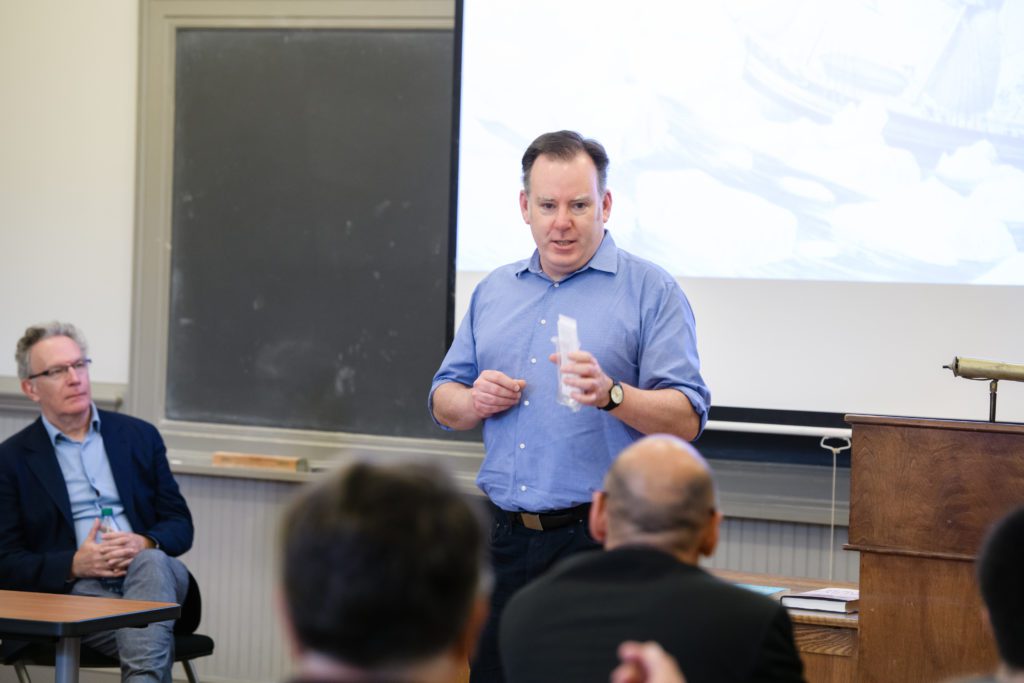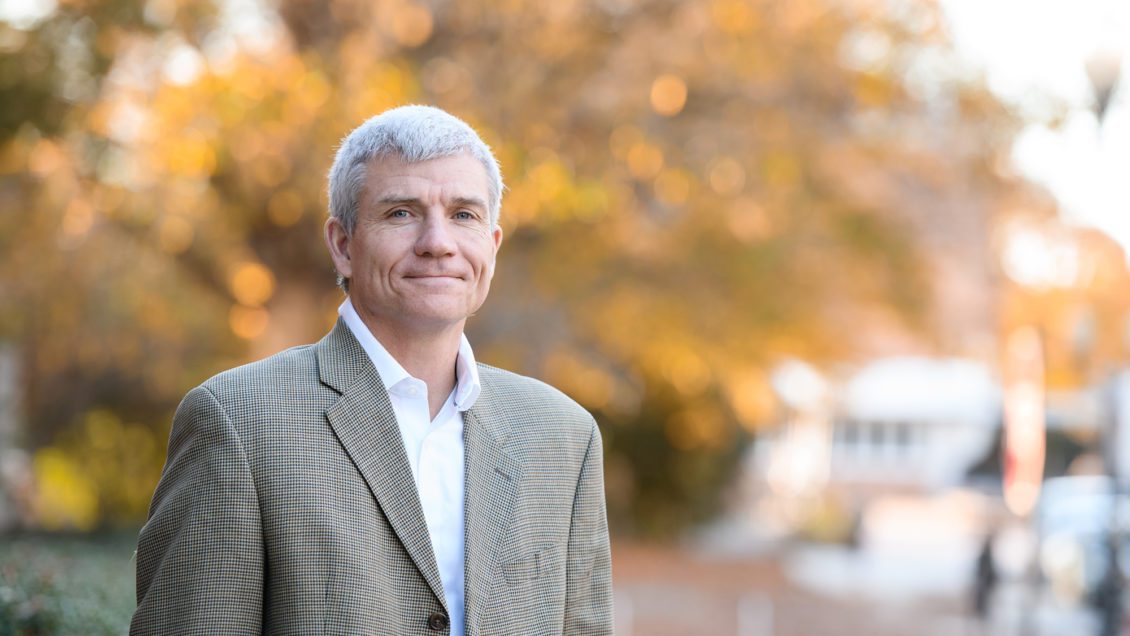The Humanities Hub at Clemson University begins a new chapter this fall, as leadership of the center passes from Lee Morrissey to James Burns.
Burns will take over as Humanities Hub Director on October 1, moving from his current role as associate dean of undergraduate and graduate studies for the College of Architecture, Arts and Humanities. Morrissey will continue as a professor in the Department of English.
“I am delighted to take the reins from my good friend and colleague Lee Morrissey,” Burns said. “I look forward to building on the great work Lee started five years ago. The Humanities are the ‘sleeping giant’ of Clemson university, and I am excited to work with our fantastic faculty and students to develop high profile, high impact events and programs.”
There is so much still to be done to raise awareness about the central importance of the Humanities, about how there is no civilization or culture worth living in, if the Humanities are not nurtured.”
Nicholas Vazsonyi, Dean, College of Architecture, Arts and Humanities
The Humanities Hub is an outreach project of Clemson’s Humanities Advancement Board. It aims to advance and coordinate the research, teaching and outreach activities of the humanities disciplines: arts, language, literature, history and philosophy. Nicholas Vazsonyi, Dean of the College of Architecture, Arts and Humanities at Clemson, appointed Burns to lead the Hub after an extensive internal search.
“Throughout James’ time as associate dean, the thing that really got him going was when we started talking about the role of the Humanities,” Vazsonyi said. “Our College is literally saturated with the Humanities, and their influence extends beyond the disciplines typically associated with the term. What makes Architecture so special at Clemson is that they too approach their field through the lens of the Humanities. There is so much still to be done to raise awareness about the central importance of the Humanities, about how there is no civilization or culture worth living in, if the Humanities are not nurtured.”
A dream realized
Burns will be tasked with building on the foundation laid by Morrissey, who launched the “HumHub” in 2016.

“I think the highlight of founding the Hub can be seen in the partnerships the Hub has been able to create,” Morrissey said. “They fulfill the founding idea of advancing, coordinating, and connecting the work of the Humanities. As a result of these relationships, today the Hub is something that can be directed, something to which a new director can be appointed; its founding has been achieved, and I am so looking forward to seeing what will come next on this preliminary groundwork made possible by collaboration with so many Humanities Hub partners and co-sponsors.”
Under Burns, the goal will be to fan the flame that dimmed during the pandemic.
“COVID forced the Hub to put many of its activities on hold, but we are hoping to coordinate some virtual events for Fall, and to come back with live in person events if possible in Spring 2022,” Burns said.
About James Burns
Burns is intimately familiar with humanities activities at Clemson, having been a member of the history faculty since 1999, advancing to full professor in 2012 and serving as department chair from 2015-2019. As a specialist in both African history and the social history of film, his scholarship—like the Humanities Hub—spans multiple disciplines. His published works include A History of Sub-Saharan Africa with co-author Robert O. Collins (Cambridge University Press), Cinema and Society in the British Empire, 1895-1940 (Palgrave/Macmillan) and Flickering Shadows: Cinema and Identity in Colonial Zimbabwe (Ohio University Press). He holds a Ph. D. in history from the University of California, Santa Barbara. Burns was awarded the University Research, Scholarship and Artistic Achievement Award in 2019. He is a past recipient of the College of Architecture, Arts and Humanities teaching award, its Creativity Professorship and the John B. and Thelma A. Gentry Award for Teaching Excellence in the Humanities.
Get in touch and we will connect you with the author or another expert.
Or email us at news@clemson.edu

